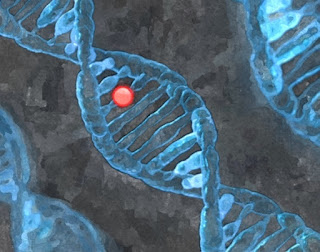Evolution and Purging Bad Mutations
At the beginning of creation, everything was very good. After the Fall of Man, things began to deteriorate. That is why we have mutations and the degradation of the genome. Indeed, genetic entropy is a powerful refutation of deep time.
One of the fastest ways to accumulate mutations is inbreeding depression. (No, it has nothing to do with sadness from having the same relatives as one's spouse.) Rather, it is the loss of fitness that can lead to the extinction of a species.
 |
| DNA Mutation, Pixabay / swiftsciencewriting, modified with FotoSketcher |
Mutations are an ongoing problem in nature. Since the vast majority of mutations are deleterious, even by admission of the evolutionary community,1 in theory, genomes should always be breaking down. The result of this breakdown should be a reduction in fitness, leading to extinction. And if this were true, extinction for all species would be inevitable in short order. Thus, to avoid the logical consequences of mutations destroying genomes over vast periods of time, evolutionists must theorize a way for these deleterious mutations to be eliminated from the genomes of living things. There have been several proposed mechanisms to do this for different contexts, but here we will focus on just one: purging by purifying selection.
To read the rest of this somewhat technical article, head on over to "Can Genetic Mutations Be Purged from the Genome?"